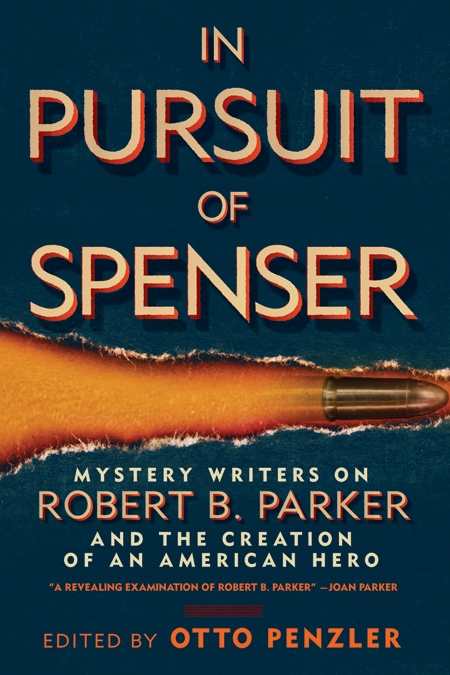In Pursuit of Spenser
Mystery Writers on Robert B. Parker and the Creation of an American Hero
Who could have guessed when academic Robert B. Parker introduced Boston private eye Spenser in The Godwulf Manuscript in 1974 that the entire landscape of American detective fiction would shift? Although Spenser (last name only, please) was not born fully formed, he was literate, chivalric, and socially aware from the very beginning, traits that would endure and take on greater definition in the thirty-eight subsequent Spenser chronicles Parker turned out before his death at 77 in 2010. Sustaining Spenser, both psychologically and physically, were two other equally memorable characters—his self-assured, Harvard-educated paramour, Susan Silverman, and his ruthless, stylish, African-American brother-in-arms, Hawk.
The fourteen essays here examine Spenser’s place in the literary genre and anatomize the aims, techniques, and achievements of his creator. “As a writer, I learned everything about hero-driven detective fiction—and just fiction in general—from Spenser and Robert B. Parker,” says Ace Atkins, who’s been chosen by Parker’s estate to continue the Spenser franchise. More important, Atkins notes, Parker, via Spenser’s adventures and musings, gave him a code to live by. Dennis Lehane, no small potato in the private eye garden, tells how he and Parker, while watching a Patriots game on TV at a Christmas party, formed an unspoken bond and taught a rude kid some manners in the process. Lawrence Block concentrates his sensitive ear to delineate the irresistible “sound” of a Spenser novel.
The essays also cover Parker’s other fictional creations: the flawed police chief Jesse Stone and the female detective Sunny Randall; compare the series figures in his western novels to his contemporary characters; question whether Susan is endearing, annoying, or both; whether Hawk represents impulses and actions too violent for Spenser to indulge in; and ponder how well the actors Robert Urich and Joe Mantegna captured and conveyed Spenser’s essence on film. Included, too, are commentaries on Spenser’s accepting—but never self-abasing—attitudes toward race and sexuality.
This collection concludes with an extremely useful bibliography of Parker’s works, which were prodigious—sixty-nine novels (including young adult titles and his completion of Raymond Chandler’s Poodle Springs), a couple of short stories, and four non-fiction books. Not surprisingly, the final selection in this set is from Parker’s own pen. In it Spenser talks about himself and his code to a writer who’s doing profiles on “men who are strong and tough and who do dangerous work.” That’s our guy.
Reviewed by
Edward Morris
Disclosure: This article is not an endorsement, but a review. The publisher of this book provided free copies of the book to have their book reviewed by a professional reviewer. No fee was paid by the publisher for this review. Foreword Reviews only recommends books that we love. Foreword Magazine, Inc. is disclosing this in accordance with the Federal Trade Commission’s 16 CFR, Part 255.

